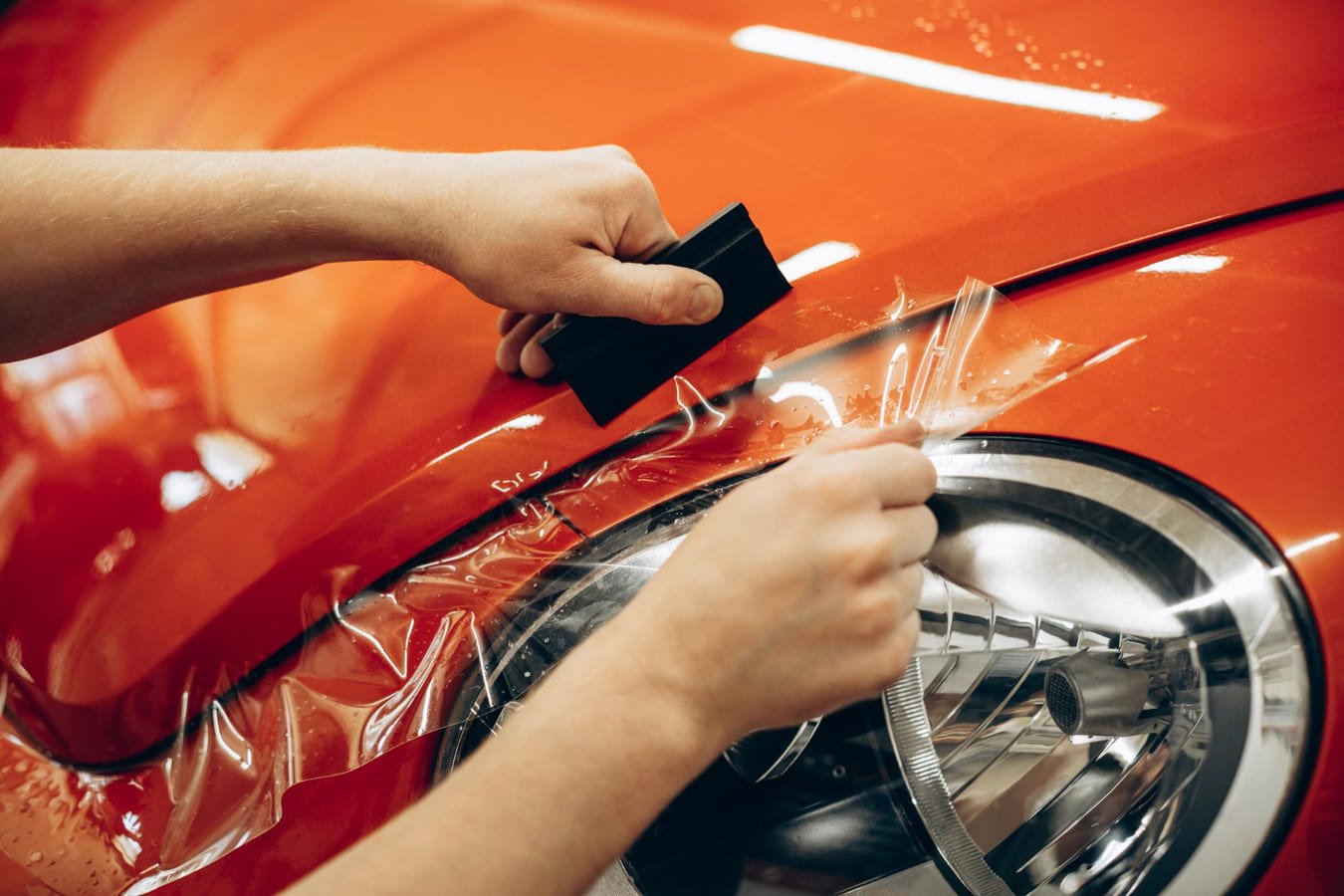In recent years, Paint Protection Films (PPFs) have surged in popularity within the Indian automotive market. Promising long-term protection against scratches, stone chips, and environmental contaminants, PPFs have been marketed aggressively with extended warranty schemes of 5, 7, and even 10 years. While these films might seem like an attractive proposition for vehicle owners, they have introduced significant disruptions to the detailing industry, particularly for detailing shop owners. This blog post explores the multifaceted impact of PPFs on the detailing sector and provides insights into how shop owners can navigate and mitigate these challenges.
The Rise of PPFs: An Overview
Paint Protection Films are essentially thermoplastic urethane films applied to the painted surfaces of a vehicle. Originally developed for military applications, PPFs have evolved into a consumer product, touted for their ability to preserve a vehicle’s aesthetic by providing a resilient shield against physical damage and environmental degradation.
The Long-Term Warranties: A Double-Edged Sword
The marketing strategies of PPF manufacturers often include warranties extending up to a decade. These warranties are designed to entice customers by offering peace of mind and long-term protection. However, these extended warranties have a profound, often detrimental impact on detailing businesses.
Reduced Recurring Business
The core business model for detailing shops traditionally relies on recurring services, including regular maintenance, paint correction, and the application of protective coatings. PPFs, with their long-term durability and extended warranties, effectively reduce the need for these recurring services. Once a PPF is installed, the customer is less likely to return for routine detailing services, thereby cutting off a vital revenue stream for shop owners.
Economic Analysis
To put this into perspective, consider a detailing shop that charges ₹15,000 for a full detailing service, which a customer might purchase annually. Over a decade, this customer would contribute ₹150,000 to the business. In contrast, a one-time PPF installation might cost ₹100,000 with a 10-year warranty, significantly reducing the customer’s return visits. This shift represents a substantial economic hit to the detailing shop, as the long-term customer value is drastically diminished.
The Technical Limitations of PPFs
Despite their touted benefits, PPFs are not without limitations. These films can degrade over time, becoming yellowed or cracked, particularly under harsh environmental conditions. The removal and replacement of PPFs can also be a labor-intensive and costly process, which may not always be covered under warranty. This reality stands in stark contrast to the perceived permanence and invincibility often marketed to consumers.
The Perils of a Saturated Market
The influx of PPFs has also led to market saturation. Numerous businesses, often with limited expertise, have jumped onto the PPF bandwagon, leading to inconsistent quality and customer dissatisfaction. This saturation further complicates the landscape for professional detailing shops, as the market becomes crowded with providers offering varying levels of service and expertise.
Educating Customers: A Strategic Imperative
Given the challenges posed by PPFs, it is imperative for detailing shop owners to educate their customers about the broader spectrum of vehicle care. Here’s how:
Emphasizing Comprehensive Care
Detailing professionals should highlight the importance of comprehensive vehicle care beyond the scope of PPFs. This includes regular maintenance services such as paint correction, ceramic coatings, and interior detailing, which collectively ensure the vehicle remains in pristine condition.
Transparency About PPF Limitations
Educating customers about the limitations and potential downsides of PPFs is crucial. This includes discussing the possibility of film degradation, the cost and complexity of removal and replacement, and the reality that no protective film can render a vehicle impervious to all forms of damage.
Showcasing the Value of Regular Detailing
Detailing shop owners should underscore the value of regular detailing services in preserving a vehicle’s aesthetic and functional integrity. Demonstrating the transformative results of professional detailing, coupled with the longevity of quality ceramic coatings and regular maintenance, can persuade customers of the ongoing value of these services.
Conclusion
The advent of Paint Protection Films has undeniably altered the landscape of the Indian detailing industry. While PPFs offer tangible benefits, the long-term implications for detailing businesses are significant, particularly in terms of reduced recurring revenue and market saturation. By adopting a proactive approach in educating customers and emphasizing the comprehensive benefits of regular detailing, shop owners can mitigate the impact of PPFs and continue to thrive in this evolving market.
In an industry driven by expertise and quality, the role of professional detailing services remains indispensable. It is through this lens that detailing shop owners must navigate the challenges posed by PPFs, ensuring that the essence of true vehicle care continues to shine through.




